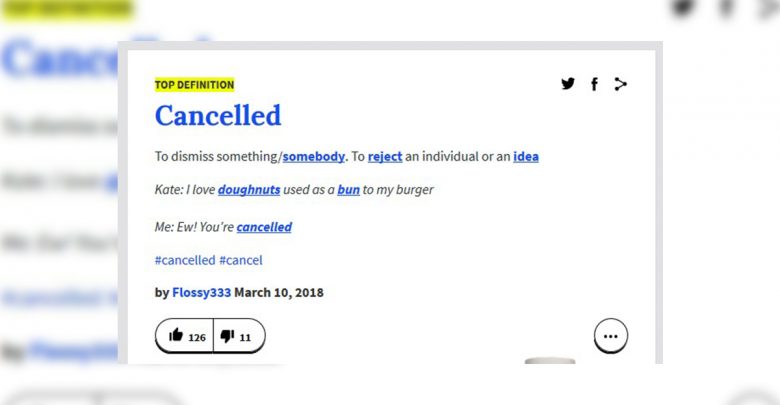Cancel culture isn’t healthy or helpful
 Supplied
SuppliedIt just won’t die: with every new celebrity scandal comes a wave of posts declaring that celebrity “cancelled.” The people behind the posts may mean well, but in truth, slapping the “cancelled” label on anyone who steps outside moral or social boundaries really isn’t helpful.
While the target varies, the sequence of events is always the same. A celebrity or public figure becomes well-known. As more people come to know and love them, they are placed on a pedestal. Their status as a cultural icon grows, until it seems like they can do no wrong.
Then comes the inevitable fallout. Maybe it’s over something truly serious, like sexual misconduct allegations. But it could just as easily be over some tone deaf tweets. It truthfully doesn’t matter how big or small the misbehaviour is; the response is always the same. The celebrity, once untouchable, is dragged down from their lofty position by those who once adored them. They are now cancelled.
Celebrities and public figures should be held accountable for their misbehavior, given their large public platforms which command huge amounts of social influence. But it’s unrealistic to expect celebrities to be perfect all the time, and we shouldn’t react with scathing hatred over every little screw-up. While criticism and boycotting are sometimes warranted, declaring someone “cancelled” is not the same thing. Cancel culture is both inconsistently applied and ineffectual, leaving its proponents in a state of pointless rage.
You’d think that those who take part in cancel culture would apply their principles evenly, across situations and people. But you’d be wrong. While some celebrities get lambasted over a couple tweets, others continue to do and say grossly offensive things with little or no consequences. Terry Crews makes a few questionable comments about male and female role models in the lives of children and decried by his fanbase, but Eminem, who has a long and storied history of using homophobic slurs, is by and large excused by his.
This might be because fans of Terry Crews and fans of Eminem are different people with different expectations of their favorite artists. Some fanbases are certainly more likely to pull the trigger than others. But cancelling isn’t just done by fans. It’s not uncommon for people who aren’t invested in a celebrity to jump on the cancel bandwagon once that celebrity becomes the center of controversy. For example, when Taylor Swift was revealed to have lied about being offended by Kanye West’s Famous lyrics, the entire internet lambasted her, not just her fans. Her “good girl” reputation that she built her career on could no longer withstand the strain, causing a permanent change in how Swift relates to her fans and the general public alike.
This inconsistency and bandwagoning speaks to the deep hypocrisy of cancelling someone. If in cancel culture different people are held to different standards and people can be cancelled by anyone at any time, then declaring someone “cancelled” holds no real weight, even if they’ve done something terrible.
“Cancelled” is also a word that suggests permanence. When a show is cancelled, it’s usually taken off the air forever. When a person is cancelled, however, it tends to be more of a postponement. The music industry and fans alike have by and large forgiven Chris Brown, who assaulted his then-girlfriend Rihanna in 2009. After keeping a low profile for several months, Brown was simply able to pick up where he left off, with very little damage to his career.
All misdeeds exist on a spectrum and cannot be weighed the same way, but you’d think that the people who we know have committed serious evils would be the most cancelled of them all. But it seems like we are only eager to cancel someone as long as they aren’t still producing things we enjoy. If we can forget their actions as soon as they come out with an awesome new track, cancel culture is nothing more than hollow virtue signalling.
The key to ending this crisis of cancelling has nothing to do with celebrities’ behavior; people have always done and will continue to do bad things. It lies within us, the public, to realize that celebrities are not gods, nor are they our best friends.They are strangers, capable of doing harm just like the rest of us. Next time a public figure’s dirty laundry is aired, we should criticize them fairly, or even withdraw financial support if we feel that strongly about it. But simply stamping the “cancelled” label on them does nothing, and it’s better for everyone if we stop pretending that it does.




